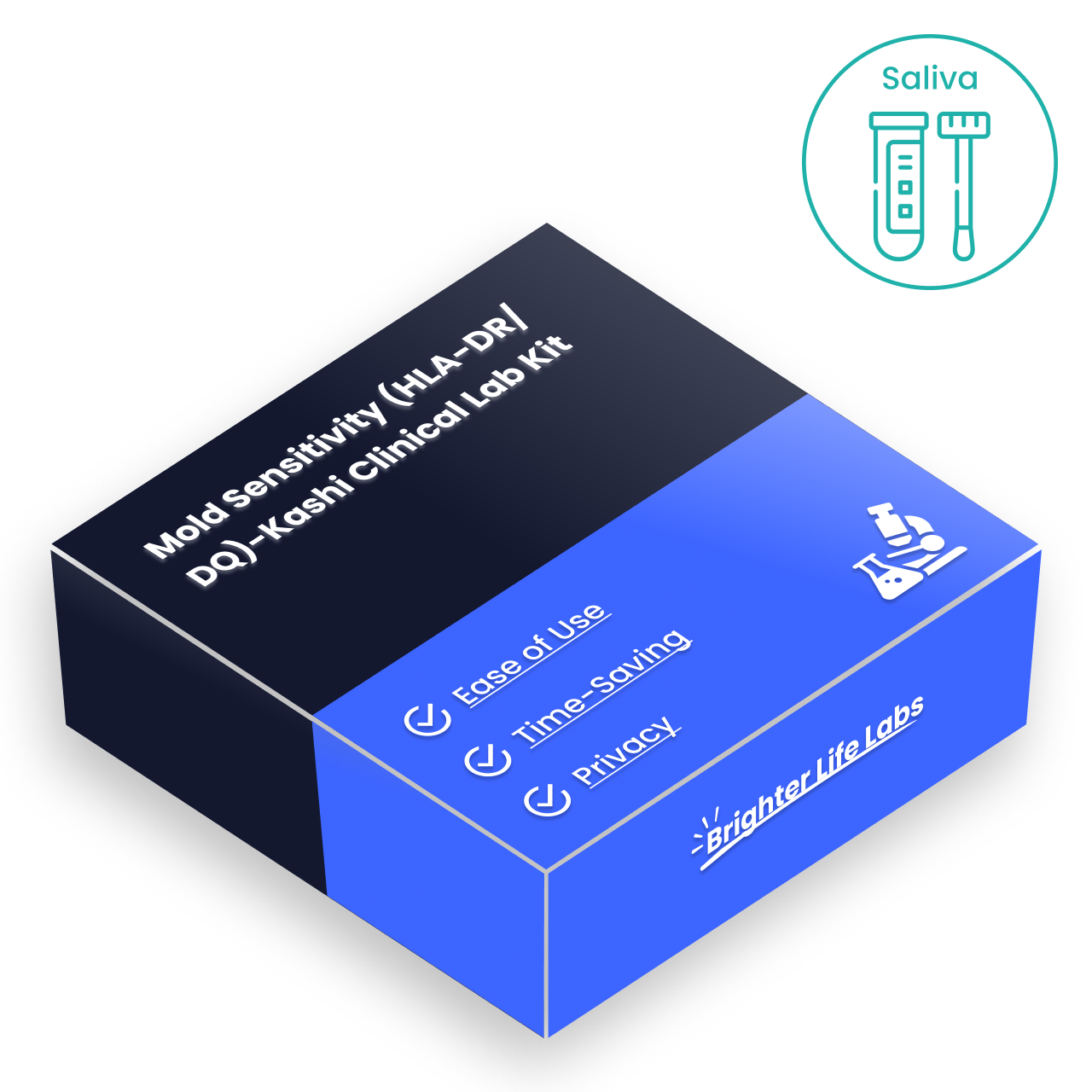1
/
of
1
Kashi Clinical lab
Mold Sensitivity (HLA-DR/DQ)-Kashi Clinical Lab Kit
Mold Sensitivity (HLA-DR/DQ)-Kashi Clinical Lab Kit
Regular price
$299.00 USD
Regular price
Sale price
$299.00 USD
Unit price
/
per
Shipping calculated at checkout.
Couldn't load pickup availability
Note: This is a test kit that will be mailed to you for an at home collection
Fasting Required:
No
Lab:
Kashi Clinical Laboratories, Inc.
Specimen:
Buccal Swab
Results:
Average processing time 5-7 business days
Note: Result turnaround times are an estimate and are not guaranteed. Our reference lab may need additional time due to weather, holidays, confirmation/repeat testing, or equipment maintenance.
Description:
A number of non-specific symptoms may occur in patients living or working in moisture-damaged buildings infested by hazardous microbiota. In the beginning, these symptoms are usually reversible, mild, and present as irritation of the mucosa and increased morbidity due to respiratory tract infections and asthma-like symptoms. Later, the disease may become chronic and the assessment of dampness and mold hypersensitivity syndrome (DMHS) may be warranted. DMHS presents with signs of irritation in the eyes, nose, and respiratory tract. Subsequently, the patient may experience recurrent sinusitis or bronchitis, and neurological manifestations such as headaches, nausea, and unexplained fatigue. Some may develop rheumatic symptoms resembling fibromyalgia or neurological symptoms which may progress into pain and/or numbness in the legs and arms and the so-called “brain fog”. These patients have impaired cognition, inability to concentrate, and problems with both short- and long-term memories. Some patients develop new-onset asthma, or may present asthma-like conditions, such as dyspnea, burning sensation in the respiratory tract, and productive or nonproductive cough. The diagnosis of dampness and mold hypersensitivity syndrome (DMHS) is clinical and is based on the patient’s history and careful examination supplemented by risk assessment based on an HLA-DR test. A study has shown the following HLA gene combinations are implicated in mold hypersensitivity: HLA-DR7-DQ2-DR53; DR7-DQ3-DR53; DR13-DQ6-DR52; DR17-DQ2-DR52; and DR18-DQ4-DR52.
Share


